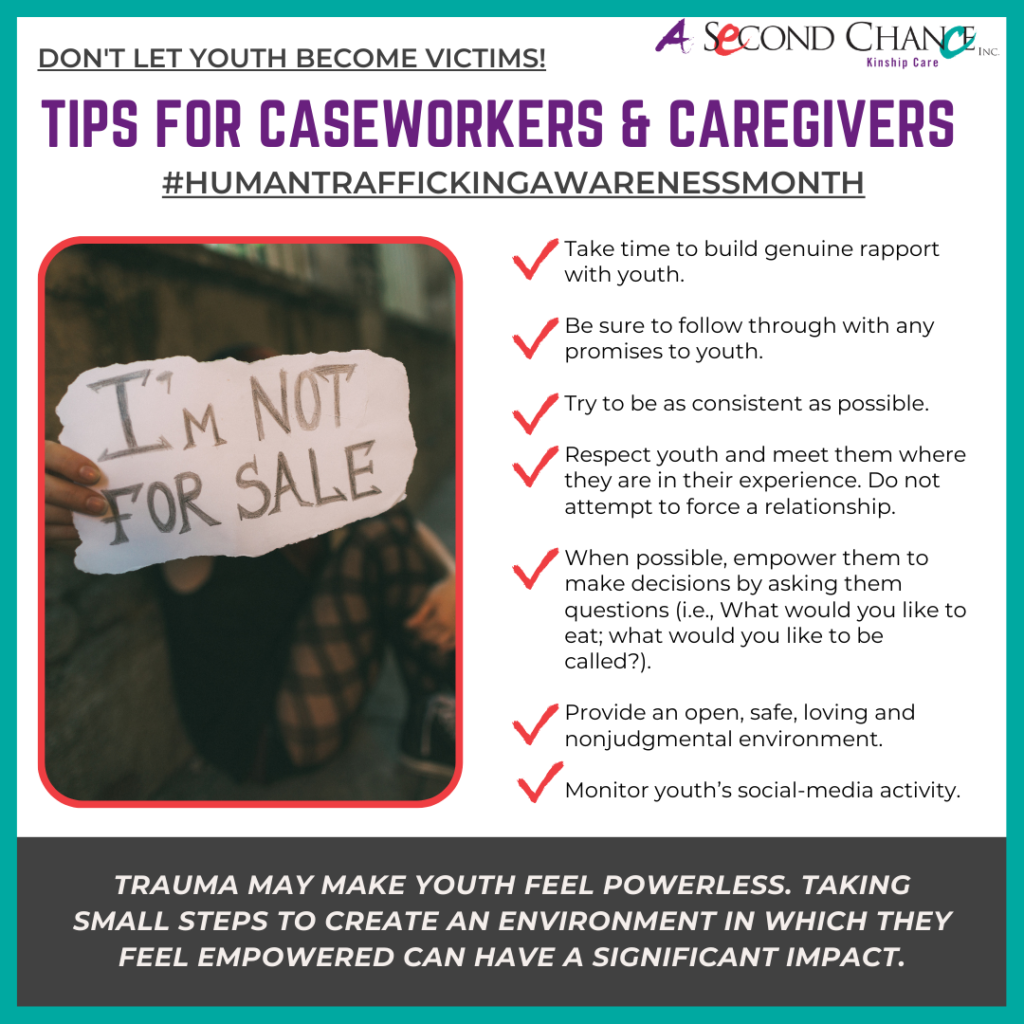Blog
Preventing Human Trafficking for Youth in Care
As a kinship caregiver, remaining on high alert to help prevent youth from becoming victimized by human trafficking is imperative. Kinship youth are at a higher risk than others so establishing trust between you and the child is important. It is time to have open and honest conversations about the issue of human trafficking. Make sure the child knows you care about their well-being more than anything else, and you won’t be upset with them based on what they reveal to you.

Here are some red flags that could indicate your child is at risk or has been targeted by human traffickers:
- The child or teen has a cell phone, money or other items not provided by kinship or biological family.
- They participate in sexual acts for alcohol, drugs, transportation, shelter, or anything else of value.
- They post sexually explicit material on social media.
- They are accompanied by an overly controlling “friend,” “partner” or “boss”.
- They show signs of physical and/or sexual abuse.
Take these steps to be sure your foster child is safe from human trafficking:
- Monitor their activity on their computers and phones.
- Educate them about human trafficking and what to look out for.
- Teach your children about the dangers of social media and engaging with people they don’t know.
- Teach your children the difference between a true friend and someone who might offer them something of value in exchange for a favor of any kind.
If someone you don’t know starts hanging around your youth, be sure to note it. Always make an effort to get to know them and be present at your child’s activities whenever possible. As you want to build a relationship of trust between you and your kinship youth, be present in their life and conduct open conversations without being overbearing.
If you see signs and believe someone is a victim of human trafficking, call the National Human Trafficking Hotline at 1-888-373-7888 immediately. Do not attempt to take matters into your own hands, for your safety.